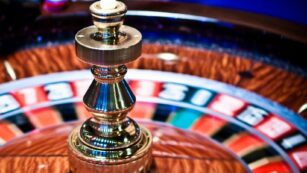Gambling has always captivated people, drawing them into a world of chance and risk. Yet, beneath the thrill lies a complex web of psychological fallacies that can skew perception and decision-making. Many gamblers fall prey to these cognitive biases, believing they can outsmart the odds or predict outcomes based on previous results.
Psychology Gambling Fallacies
Psychology plays a crucial role in gambling behaviors, fostering common fallacies that woo gamblers into making poor decisions. Understanding these fallacies can empower individuals to recognize and counteract flawed reasoning.
Common Gambling Fallacies
-
 Gambler’s Fallacy
Gambler’s Fallacy
People assume that past events influence future outcomes. For example, if a coin lands on heads multiple times, a player may believe tails is “due” next, despite each flip being independent. -
Hot Hand Fallacy
Gamblers perceive a streak of successful bets as evidence of ongoing success. For instance, players might think a slot machine hitting frequently will continue to do so, disregarding the machine’s random nature. -
Loss Chasing
Individuals often pursue their lost bets by wagering more money in hopes of recouping losses. This approach can lead to deeper financial pitfalls, as it triggers emotional decision-making. -
 Sunk Cost Fallacy
Sunk Cost Fallacy
Players become attached to their invested time or money. For instance, a gambler may continue betting in a losing game, believing they must recover their initial investment. -
Confirmation Bias
Gamblers focus on information that supports their beliefs while ignoring contradictory evidence. They may remember winning bets but overlook frequent losses, skewing their perception of luck.
Implications of Psychological Fallacies
Psychological fallacies significantly impact gambling outcomes. By failing to recognize these biases, gamblers increase their odds of making unwise financial choices. Individuals can benefit from awareness and education about these fallacies, leading to more rational gambling habits. Understanding the mechanics of these fallacies enhances the ability to navigate the gambling landscape more effectively and reduces potential financial harm.
Common Types of Gambling Fallacies
The Gambler’s Fallacy and The Hot Hand Fallacy
 The Gambler’s Fallacy involves the belief that past independent events affect future outcomes. For instance, if a coin lands on heads several times in a row, a gambler may wrongly assume that tails is more likely to occur next. This misconception leads to erroneous predictions and overconfidence in betting behaviors, ignoring the fact that each flip is independent. Research shows that reliance on this fallacy can result in increased losses, as gamblers chase perceived trends instead of understanding the odds.
The Gambler’s Fallacy involves the belief that past independent events affect future outcomes. For instance, if a coin lands on heads several times in a row, a gambler may wrongly assume that tails is more likely to occur next. This misconception leads to erroneous predictions and overconfidence in betting behaviors, ignoring the fact that each flip is independent. Research shows that reliance on this fallacy can result in increased losses, as gamblers chase perceived trends instead of understanding the odds.
The Hot Hand Fallacy is the belief that a person who experiences success in a game will continue to do so. For example, a player hitting consecutive wins may feel invincible and believe their luck will persist. Studies indicate that this fallacy misguides gamblers into making larger bets when they’re “on a roll,” despite no statistical evidence supporting the notion that past success correlates with future outcomes. This flawed reasoning often leads to overvaluing short-term patterns and neglecting the true probabilities involved.
Psychological Theories Behind Gambling Fallacies
 Cognitive biases heavily influence gambling decisions. One prominent theory is the Cognitive Dissonance Theory, which suggests that individuals experience discomfort when holding conflicting beliefs, leading them to rationalize poor gambling choices. For instance, a gambler who loses may convince themselves that their next bet will be a winner, alleviating the discomfort of loss.
Cognitive biases heavily influence gambling decisions. One prominent theory is the Cognitive Dissonance Theory, which suggests that individuals experience discomfort when holding conflicting beliefs, leading them to rationalize poor gambling choices. For instance, a gambler who loses may convince themselves that their next bet will be a winner, alleviating the discomfort of loss.
Another key theory is the Illusion of Control. This theory describes how gamblers overestimate their ability to influence outcomes. Gamblers might believe that their choices during gameplay can affect the odds, despite the randomness of many gambling activities. This perception fuels continued participation and larger bets.
The Availability Heuristic plays a pivotal role in gambling fallacies. This cognitive shortcut leads individuals to rely on immediate examples that come to mind. A gambler may recall recent wins and assume similar outcomes will continue, disregarding statistical probabilities. This misjudgment drives risky betting behavior.
The Confirmation Bias reinforces gambling fallacies by causing gamblers to seek information supporting their beliefs while dismissing contradictory evidence. For example, a player may focus on their winning streaks but ignore numerous losses, creating a distorted perception of their gambling success.
The Gamblers’ Neurobiology offers insights into why these fallacies persist. Brain imaging studies indicate that gambling activates reward pathways, similar to substance abuse.

